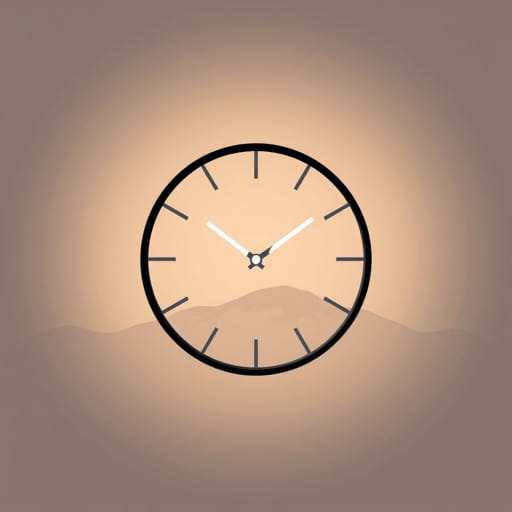Time in Greeley, Colorado, flows with a unique rhythm that mirrors the balance of natural beauty, academic life, agricultural heritage, and growing urban energy. Located in northern Colorado, Greeley is part of Weld County and operates in the Mountain Time Zone (MT), observing Daylight Saving Time during the summer months. Whether you’re visiting for business, attending the University of Northern Colorado, or planning to explore local attractions, understanding the local time and how it influences life in Greeley can help you make the most of your experience in this vibrant city.
Understanding the Time Zone in Greeley
Greeley, Colorado, is in the Mountain Time Zone, which is UTC-7 during Standard Time and UTC-6 during Daylight Saving Time. Like most places in the United States, Greeley observes Daylight Saving Time, moving clocks forward one hour in the spring and back in the fall.
Current Time Zone Details
- Standard Time (Winter): Mountain Standard Time (MST), UTC -7
- Daylight Saving Time (Summer): Mountain Daylight Time (MDT), UTC -6
Daylight Saving Time in Greeley typically starts in March and ends in November, following the U.S. national schedule. This time adjustment provides longer evening daylight in spring and summer, which supports outdoor activities and tourism in the city.
Daily Life and Local Schedules in Greeley
The rhythm of time in Greeley reflects the city’s character a blend of academic energy, agricultural roots, and small-town charm. Daily schedules across Greeley align with its Mountain Time setting, which is important for travelers or anyone coordinating appointments, meetings, or digital communication from other time zones.
Typical Daily Routines
- Work Hours: Most businesses operate from 8: 00 AM to 5: 00 PM
- School and University: Classes often start by 8: 00 AM and may continue into the early evening
- Shops and Restaurants: Open around 10: 00 AM and close by 9: 00 PM
- Nightlife: Local bars and live music venues may stay open until midnight or later
Because of the time zone, people traveling from the East Coast (Eastern Time Zone) will experience a two-hour difference, while those from the West Coast (Pacific Time Zone) face a one-hour shift. This is helpful to know for phone calls, video conferences, and scheduling events with family and friends in different regions.
Impact of Time on Tourism and Activities
Tourism in Greeley benefits from the changing daylight hours throughout the year. Visitors often plan their activities based on available sunlight and seasonal events that are influenced by time and climate. During the longer summer days, outdoor activities thrive, while winter months offer a cozy atmosphere ideal for indoor attractions and events.
Popular Time-Based Activities
- Morning walks and bike rides along the Poudre River Trail
- Midday visits to the Colorado Model Railroad Museum or Centennial Village Museum
- Evening concerts, festivals, and university sporting events
- Sunset views at Glenmere Park or Sanborn Park
Understanding when the sun rises and sets in Greeley throughout the year helps both residents and tourists plan their days more effectively. In June, the sun can set after 8: 30 PM, while in December it may set before 5: 00 PM.
Seasonal Time Changes and Weather Patterns
Time in Greeley is not only defined by the clock but also by the changing seasons. As the year progresses, shifts in temperature and daylight influence everything from daily routines to community events.
Seasonal Highlights
- Spring: Daylight increases, temperatures rise, and outdoor festivals begin
- Summer: Long daylight hours encourage camping, hiking, and local fairs
- Autumn: Cooler days and earlier sunsets set the tone for harvest-themed events
- Winter: Shorter days, snow, and holiday lights create a quiet, festive mood
Greeley’s seasons bring variety to the local lifestyle, and the timing of daily events adapts to these seasonal changes. From sunrise yoga in the park to late-night community concerts, time plays a vital role in how the city’s personality unfolds throughout the year.
Coordinating with Other Time Zones
If you’re managing a business, attending online classes, or communicating with people outside Colorado, being aware of time differences is essential. Coordinating across time zones can affect meetings, travel plans, and deadlines, especially for those in professional or academic settings.
Time Differences with Major Cities
- New York City – 2 hours ahead (Eastern Time)
- Chicago – 1 hour ahead (Central Time)
- Los Angeles – 1 hour behind (Pacific Time)
- London – 7 hours ahead during Standard Time
- Sydney – 17 hours ahead (during Australian Daylight Time)
Utilizing world clock tools or mobile apps can help residents and travelers avoid confusion when dealing with people in other parts of the country or globe.
Public Transportation and Time Awareness
Greeley’s local public transport system, including buses and ride-share services, also operates on Mountain Time. For those using public transport, being on time is essential, especially during peak hours in the morning and late afternoon.
Tips for Commuters
- Check current schedules on weekdays and weekends
- Arrive at bus stops early to avoid missing connections
- Keep your watch or phone time updated, especially during Daylight Saving changes
- Allow buffer time for rideshare delays during high-traffic periods
Being time-conscious not only improves punctuality but also enhances your experience when navigating through Greeley and its surrounding communities.
Time in Greeley, Colorado, is more than a clock setting it’s a reflection of the city’s lifestyle, culture, and community rhythm. Located in the Mountain Time Zone, Greeley’s daily and seasonal time changes influence everything from travel and work to recreation and personal interaction. Whether you’re coordinating schedules across time zones, exploring local parks, or attending events at the University of Northern Colorado, staying aware of the local time helps ensure a smooth and enjoyable experience. As Greeley continues to grow and welcome visitors from all over, its relationship with time remains an essential part of what makes the city tick.
